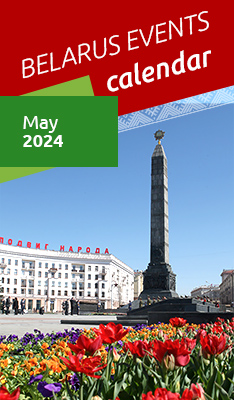Events
Belarus at UN: No sustainable development without sustainable peace

Yuri Ambrazevich. MFA photo
MINSK, 19 July (BelTA) - Sustainable peace is essential for sustainable development, and without it, no action will lead towards the SDGs, Belarusian Deputy Minister of Foreign Affairs Yuri Ambrazevich said as he spoke at the Ministerial Segment, High-Level Political Forum 2023 under the auspices of ECOSOC at the UN headquarters in New York, BelTA learned from the press service of the Ministry of Foreign Affairs.
"Sustainable development is possible only with sustainable peace. Peace is stable when every participant has their concerns taken into account and when there is a balance of interests satisfying everyone in a dignified and acceptable way," Yuri Ambrazevich emphasized.
The current forum on sustainable development is taking place at a time of the acute crisis of global security and trust. "The crisis has revealed the desire of individual players to promote their own interests to the detriment of the interests of others. The response of those who disagree with this approach gave rise to the ensuing confrontation, the degradation of the international security architecture and the system of international law. All this threatens not only the Sustainable Development Goals but also the existence of humanity itself," said Yuri Ambrazevich. “For the international community to return to development and creation, we need to agree, as soon as possible, on the conditions for sustainable peace. Without this, any initiatives to accelerate the progress towards the SDGs are doomed to failure."
The deputy minister said that the world should also become free from unilateral coercive measures, and called to condemn the ban by Lithuania, the United States, and the European Union on the transit of potash fertilizers from Belarus to developing countries in Africa, Latin America and Asia.
Yuri Ambrazevich stated the need to ensure in practice the right of every country to access food, fertilizers, energy, and other resources, including technologies at an acceptable reasonable price, which will significantly reduce the technological and economic gap in development between the "golden billion" and the rest of the world and prevent many future conflicts.
Yuri Ambrazevich spoke about Belarus’ progress towards the Sustainable Development Goals, which, in the face of unprecedented external pressure, became possible due to the regional economic integration and partner bilateral relations with like-minded states in the East and South.
As part of the general discussion, Yuri Ambrazevich also made a statement on behalf of the 26 Member States of the Group of Friends of the Family, noting the need to strengthen family-oriented policies and programmes within the framework of an integrated and comprehensive approach to sustainable development.
In preparation for the 30th anniversary of the International Year of the Family, to be celebrated in 2024, the Group called on UN agencies to intensify research and advocacy on family in order to design and implement development programmes that take into account the family as a social institution.
Yuri Ambrazevich opened a thematic event "Regional potential for SDGs: Partnership for goals" organized by Belarus, Russia and the Eurasian Economic Commission. He emphasized the role of integration associations in ensuring sustainable economic growth and promoting sustainable development at all levels. The deputy minister highlighted the significant potential of interregional cooperation relying on the principles of equality and international law and the experience of Belarus' participation in the Eurasian Economic Union, membership in which was one of the main factors that helped the country to counter the unilateral coercive measures imposed on Belarus by Western countries.
At a briefing on the impact of sanctions on Belarusian potash fertilizer exports in the context of global food security, Yuri Ambrazevich stressed that the illegal ban by the EU countries and specifically by Lithuania on the transit of Belarusian fertilizers has direct negative consequences for millions of people around the world as it deprives them of access to fertilizers at a reasonable price. He cited the reports and statistics by the authoritative international organizations (UN, FAO, WTO, World Bank, International Association of Fertilizer Producers) to confirm the findings that the current shortage of potash fertilizers on the international market will continue to lead to a reduction in their use, a decrease in yields and, as a result, an increase in food prices.
Relying on the international solidarity Belarus will continue to seek the lifting of the ban on Belarusian potash in partnership with like-minded foreign states.
The deputy minister of foreign affairs also took part in a meeting with the leadership of the UN economic commissions from all regions of the world. He stressed the unique unifying mandate of the United Nations Economic Commission for Europe and other regional commissions and noted the need for their interaction.Being a European country, Belarus is increasingly integrating into Eurasian processes. In 2022 it began to actively cooperate with ESCAP where it received observer status. Yuri Ambrazevich called for maintaining regular cooperation between experts in all areas of UNECE expertise, noting that the technical level of professional and depoliticized mutual understanding is a prerequisite for prompt restoration of cooperation in the region after lasting peace and a new system of European security are established.







 print version
print version make home page
make home page add to bookmarks
add to bookmarks

